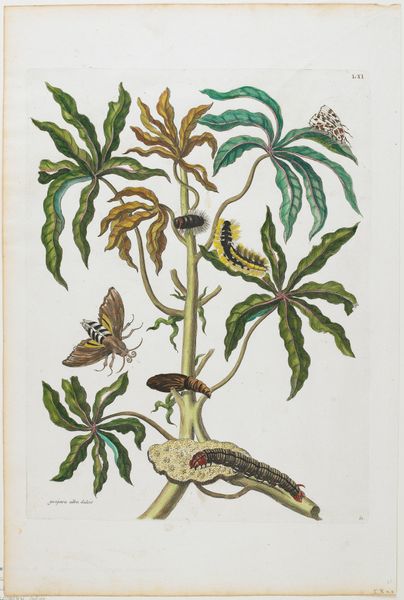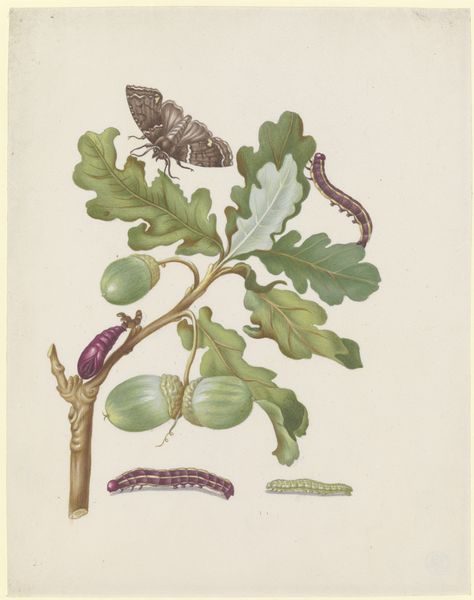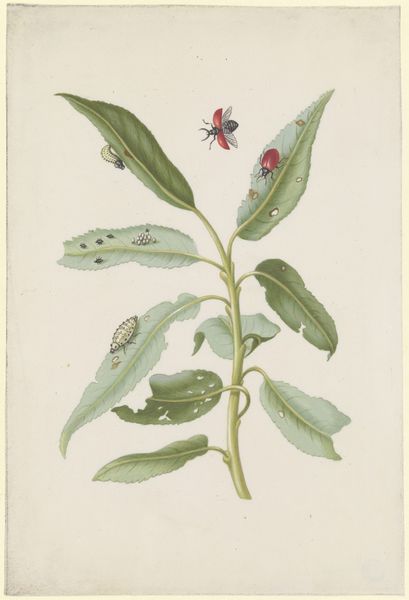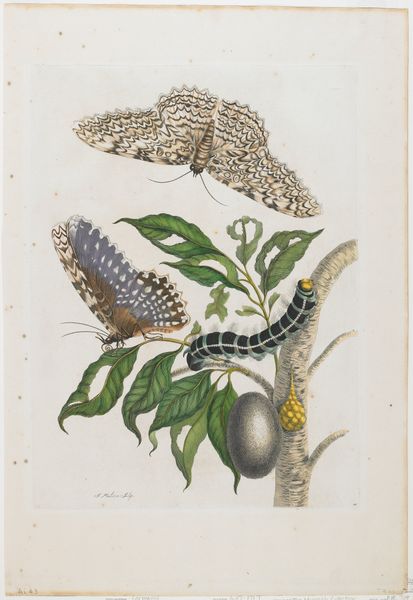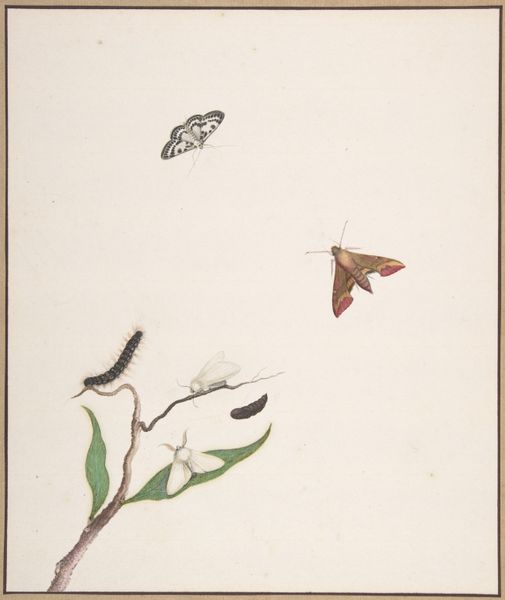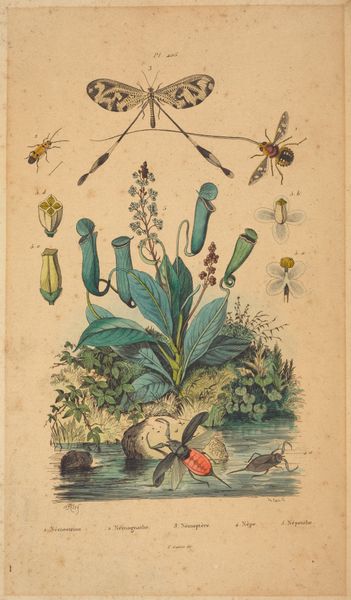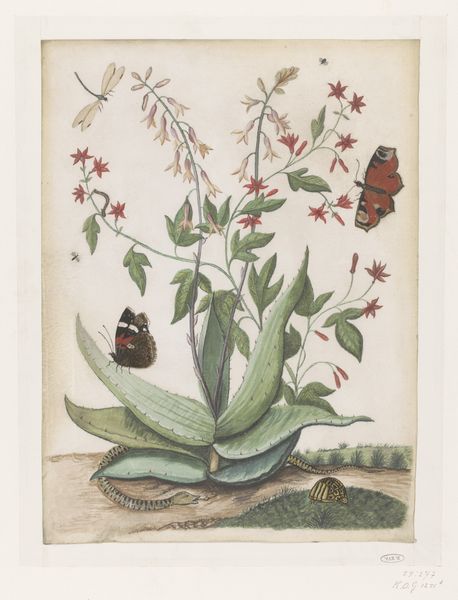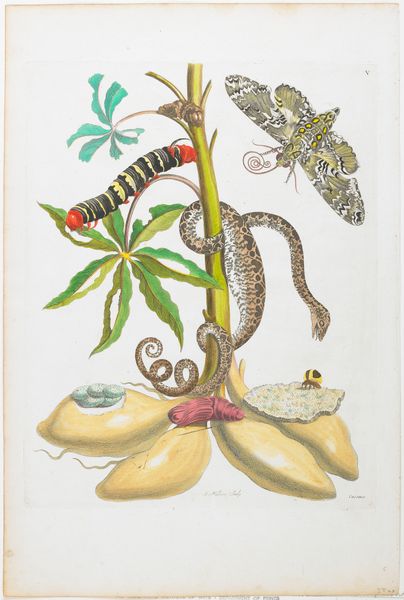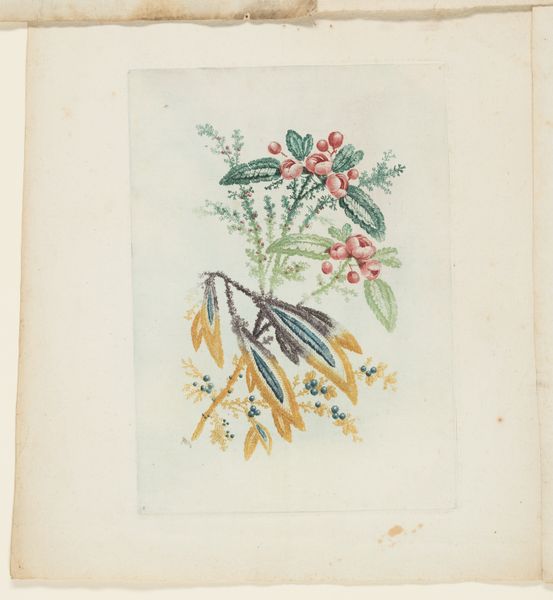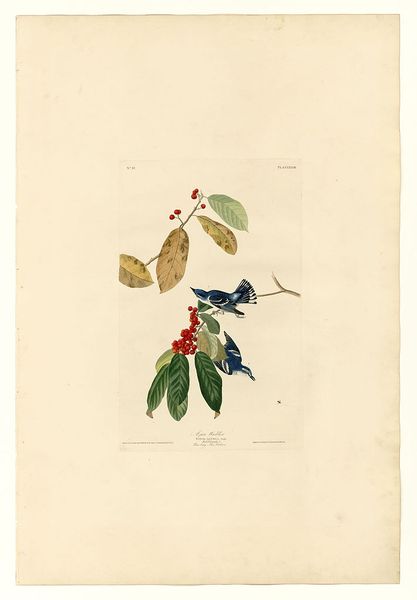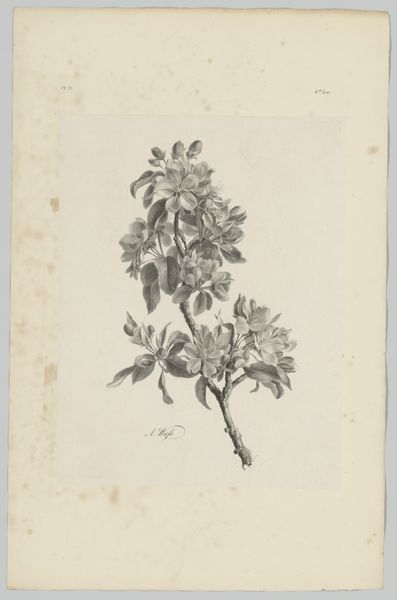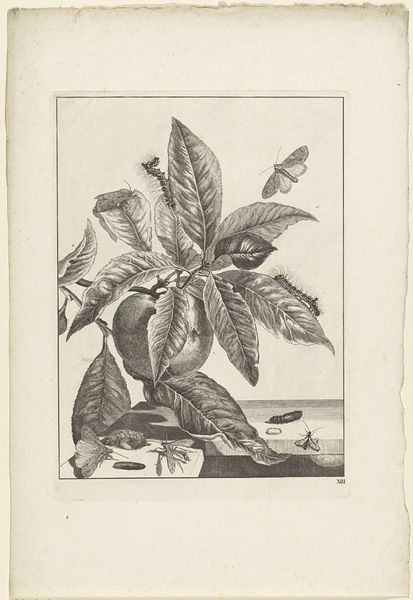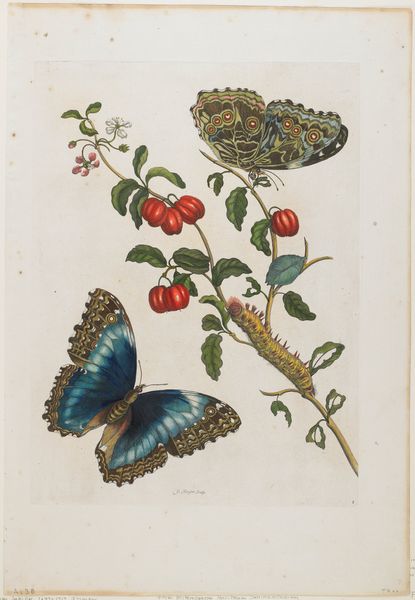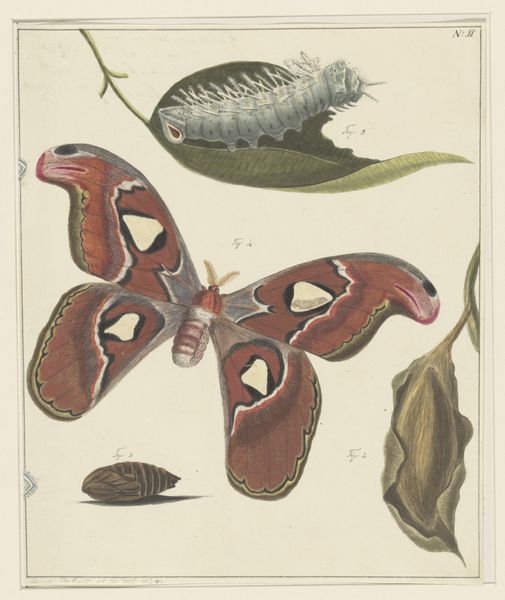
hand-colored-etching, print, watercolor, engraving
#
hand-colored-etching
# print
#
figuration
#
watercolor
#
watercolour illustration
#
engraving
#
botanical art
Dimensions: 15 x 10 3/4 in. (38.1 x 27.31 cm) (sheet)
Copyright: Public Domain
This undated print depicts a sphinx moth alongside a plant with various stages of its life cycle. With meticulous detail, an anonymous artist captured the creature’s transformative journey. Such images were often made in the context of scientific study, with the aim of recording and classifying species for natural history. The artist likely worked within a network of scientists, explorers, and collectors, reflecting a growing global interest in the natural world. This interest was intimately tied to the expansion of European empires as they sought to map and exploit the resources of newly colonized lands. Understanding the artwork necessitates research into the scientific and artistic conventions of the time. By exploring the historical archives of scientific illustration, we can better understand the values and ideologies embedded in seemingly objective representations of nature. The meaning of this image is contingent on the social and institutional contexts in which it was produced and viewed.
Comments
minneapolisinstituteofart about 2 years ago
⋮
The Giant Sphinx Moth depicted at bottom right is Cocytius antaeus (Drury), shown with its larva and pupa. The adult feeds through its long, tubular proboscis, which is formed from two parts. Merian drew the larva feeding on a plant known as the Bellyache Bush, because all parts of the plant are poisonous, particularly the seeds. Marian noted that the leaves of this plant were used for "purgatives and for enemas."
Join the conversation
Join millions of artists and users on Artera today and experience the ultimate creative platform.
